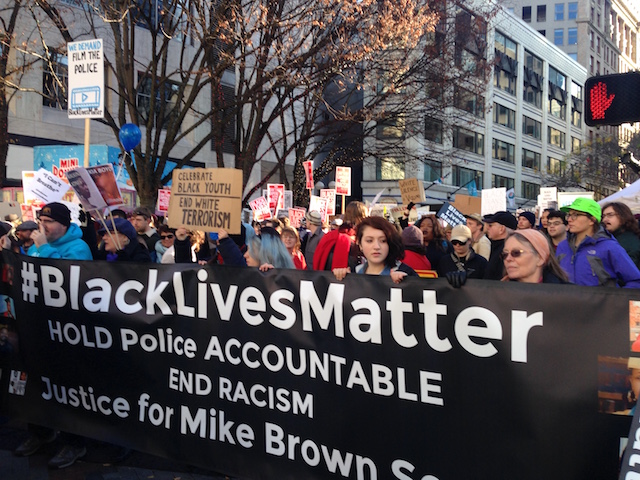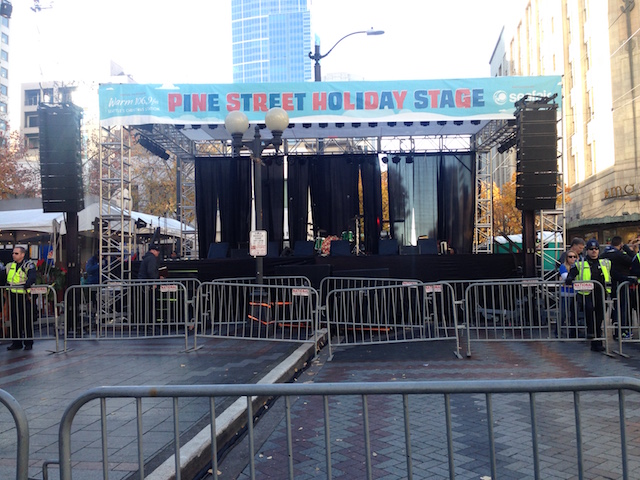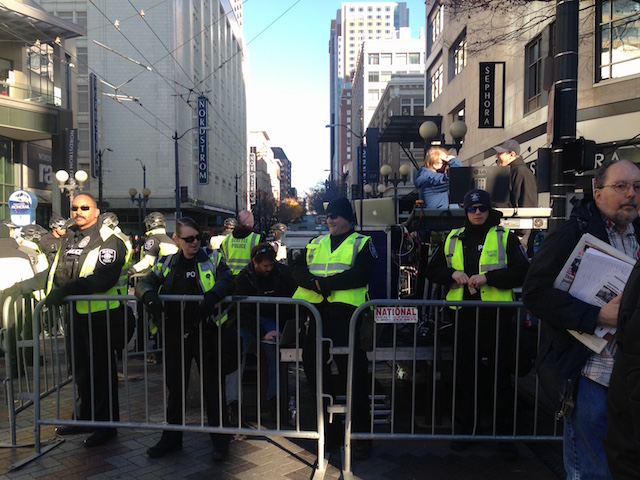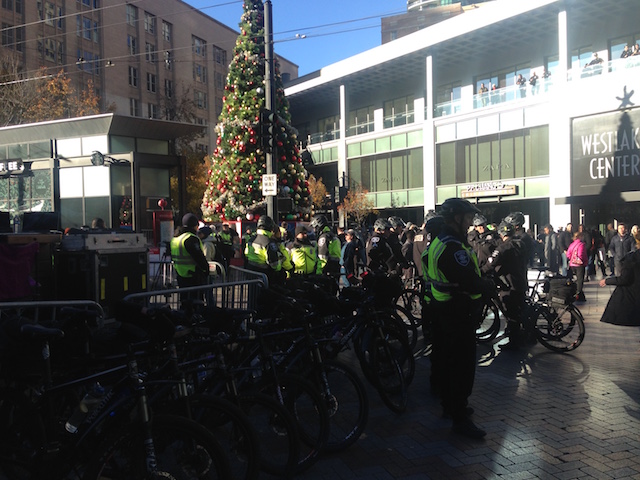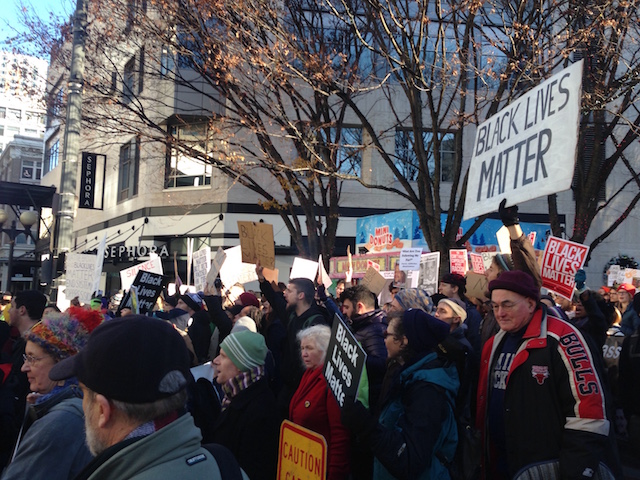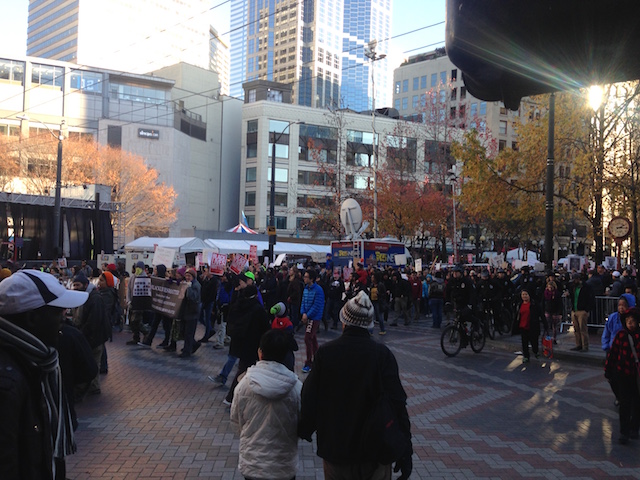Singer-songwriter Ani DiFranco announced, and then canceled, an expensive four-day retreat for songwriters and performers at Nottoway Plantation and Resort after the internet erupted in outrage at her choice of the venue. Nottoway is not just the site of one of the largest slave plantations in the area, but is also preserved as an exclusive resort actively distorting and even glorifying brutal history of slavery in the United States.
I came into queer identity in a predominantly white rural lesbian (and bisexual women’s) community in the mid-90s, so Ani’s voice was a life support. I listened to her politically savvy and lyrically masterful music non-stop, traveled long distance to see her perform, and bought her merch from her mom who was working at her label, Righteous Babe Records. I collected and traded bootleg tapes of her shows with other fans (before Napster made it possible to share MP3 files online), and asked a friend who was a DJ at campus radio station to obtain her promo singles that were not commercially released. When I was in her home town of Buffalo back in 2006, I snuck into (with the permission of the friendly construction workers there) the historic building (which later became Babeville) that was undergoing restoration and renovation after Ani purchased it in order to save the gorgeous building from demolition.
So it was painful to me to witness how Ani somehow failed to recognize the offensiveness of holding the retreat at Nottoway Plantation, or to anticipate how people would react to the announcement, but I held on to the hope that, once confronted, she would immediately understand and acknowledge her mistake. Unfortunately, the statement she released in response to the criticism fell short of what I expected from someone who was so important to me at one point in my life.
Below is a list of problems (which is not to say that it is exhaustive) I find with the statement (all emphases are mine). Please also read “Things about Ani’s fauxpology I’m not okay with” by Jaya and “How Ani Should Have Apologized” by Mel Hartsell.
1. The statement treats criticisms as “pain of slavery” and “bitterness” misdirected at her, rather than acknowledging that her endorsement of a resort facility that glorifies chattel slavery was the problem. By doing so, Ani portrays herself as the victim of “hatred” directed at her.
i did not imagine or understand that the setting of a plantation would trigger such collective outrage or result in so much high velocity bitterness.
i know that the pain of slavery is real and runs very deep and wide. however, in this incident i think is very unfortunate what many have chosen to do with that pain.
i obviously underestimated the power of an evocatively symbolic place to trigger collective and individual pain.
but should hatred be spit at me over that mistake?
2. The statement fails to concretely acknowledge that the choice of venue was inappropriate and offensive. By using words like “if” and “maybe” and leaving the judgment to the community, Ani avoids taking responsibility for her mistake.
i have heard the feedback that it is not my place to go to former plantations and initiate such a dialogue.
again, maybe we should indeed have drawn a line in this case and said nottoway plantation is not a good place to go; maybe we should have vetted the place more thoroughly.
if nottoway is simply not an acceptable place for me to go and try to do my work in the eyes of many, then let me just concede before more divisive words are spilled.
She says that she is canceling the retreat, not because she realized that it was a mistake to plan it at the venue, but other people are being mean to her.
3. Ani claims that she had “imagined a dialogue would emerge organically over the four days about the issue of where we were,” but it is extremely difficult to believe this, given her initial “invitation” to the retreat stated “We will be shacked up at the historic Nottoway Plantation and Resort in White Castle, LA, for 3 days and 4 nights exchanging ideas, making music, and otherwise getting suntans in the light of each other’s company. […] In the evenings we will perform for each other and enjoy great food in a captivating setting.” Really, how am I supposed to believe that the event was meant to be anti-racist? Ani wrote:
i imagined instead that the setting would become a participant in the event. this was doubtless to be a gathering of progressive and engaged people, so i imagined a dialogue would emerge organically over the four days about the issue of where we were. […] my intention of going ahead with the conference at the nottoway plantation was not to be a part of a great forgetting but it’s opposite. i know that pain is stored in places where great social ills have occurred. i believe that people must go to those places with awareness and with compassionate energy and meditate on what has happened and absorb some of the reverberating pain with their attention and their awareness. i believe that compassionate energy is transformative and necessary for healing the wounds of history.
If this was her true intention, she should have been transparent about it in the original “invitation,” and also considered how the venue would be experienced entirely differently by participants who are white, Black, indigenous, or other people of color. I personally cannot imagine that a white person working solo is capable of arranging such an event, but that’s beside the point here. I am not really convinced that Ani had in fact intended to use the venue as a place to “heal the wounds of history,” but if she really did, she did the worst job imaginable of how one could go about doing that–and the issue is not (just) that she is a white person overstepping her boundary. She is claiming to “heal” wounds of historical violence with more violence.
4. The statement invokes superficially anti-oppression rhetoric to diminish the particularities of criticisms against holding the retreat at Nottoway Plantation.
for myself, i believe that one cannot draw a line around the nottoway plantation and say “racism reached it’s depths of wrongness here” and then point to the other side of that line and say “but not here”. […] i know that indeed our whole country has had a history of invasion, oppression and exploitation as part of it’s very fabric of power and wealth. […] it is a very imperfect world we live in and i, like everyone else, am just trying to do my best to negotiate it.
let us not forget that the history of slavery and exploitation is at the foundation of much of our infrastructure in this country, not just at old plantation sites. let us not oversimplify to black and white a society that contains many many shades of grey.
Ani is of course correct to point out that every inch of this land (the United States) is a site of genocidal violence. But Nottoway is not just any site of any sort of violence; as one of the largest plantations in the United States, it is specifically a site that symbolizes the violence of slavery. And in addition to being a place with the symbolic significance, it is an institution whose owner continues to profit off of romanticizing and glamorizing the enslavement of Black people.
5. The statement objectifies youth of color as shield and source of inspiration.
i also planned to take the whole group on a field trip to Roots of Music, a free music school for underprivileged kids in New Orleans. Roots of Music is located at the Cabildo, a building in the French Quarter which was the seat of the former slaveholder government where all the laws of the slave state were first written and enacted. i believe that the existence of Roots of Music in this building is transcendent and it would have been a very inspiring place to visit. i also believe that Roots could have gained a few new supporters. in short, i think many positive and life-affirming connections would have been made at this conference, in its all of its complexity of design.
The existence of Roots of Music is transcendent, but transcendence does not rub off on folks paying $1000-4000 each to hang out with Ani and her friends. Youth of color (who I imagine to be mostly Black youth) do not exist to inspire (who I imagine to be) rich white folks, and that the organization might gain “a few new supporters” does not exonerate the poverty tourism. Worse, it appears that Ani is comparing her retreat being held at an actively white supremacist institution to the resilience of Black people building and strengthening their own communities after centuries of violence and oppression.
6. Empty call for unity and “dialogue” that is actually meant to close down the dialogue. Ani ends the statement with the following:
i ask only that as we attempt to continue to confront our country’s history together, […] let us not forget to be compassionate towards each other as we attempt to move forward and write the next pages in our history. our story is not over and, Citizens of the Internet, it is now ours to write.
She implies that critics have been less than compassionate toward her (“should hatred be spit at me”?), but many of us are critical because we are compassionate (“we have to be able to criticize what we love, say what we have to say” as Ani used to sing). Further, this paragraph tells me that she still does not understand the gravity of the offense if she thinks she is in a position to demand “compassion” from those she directly harmed by her lack of compassion in the first place.
Nowhere in the statement does she acknowledge how she put Toshi Reagon, a Black female musician who agreed to be an instructor for the retreat before the venue was announced, in an extremely awkward and uncomfortable position, booking her to sing at the site where servants were required to sing in order to prove that they were not stealing food from their master, forcing her to be the first person to publicly explain herself even though she was not responsible for the controversy and her options were limited once the outrage ensued.
(Edited to add:)
I came across additional writings on the topic after posting this. Here are links to some of them:
Also, read my follow up:

